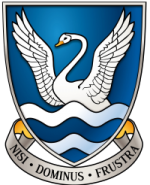 Physics
Physics
Aims
- To stimulate an interest and enjoyment of Physics and its application.
- To provide a basic knowledge and understanding of the principles and applications of Physics.
- To develop skills of observation, experimentation, processing and interpretation of data, evaluation of evidence and formulation of generalisations and models.
- To encourage pupils to apply, qualitatively and quantitatively, their knowledge and understanding of physical principles to familiar and unfamiliar situations.
- To ensure that pupils can follow instructions, and understand the need for and comply with safety precautions.
- To foster relevant communication skills (oral, written, graphic), numerical skills, ICT skills and study skills.
- To make pupils aware of the career opportunities made available through a study of Physics.
Staffing
Mrs Redpath (Head of Department)
Mrs Macafee
Mrs Keown
Subject Overview
Physics is the study of how the world works and how this knowledge can be applied to improve our everyday lives. Physics is everywhere from mobile phones, hair straighteners and shop scanners to solar panels, airplanes and satellites. Many of the everyday devices we take for granted have their foundations in Physics. Physics continues to improve our world and look for solutions to our problems.
At Glenlola Collegiate School all pupils study Physics as an individual Science from Year 10. Pupils can then choose to continue the study of Physics at GCSE, AS and A Level.
Key Stage 3
In Year 10 pupils study Physics for 1 hour each week. The Year 10 syllabus aims to give pupils an insight into what studying Physics at GCSE will be like and how Physics can be applied to everyday situations. Pupils study topics including Measurement, Pressure, Static Electricity and Moments.
Key Stage 4
During the GCSE course the pupils will develop a knowledge and understanding of physics and how physics has an influence on the world we live in. It encourages the development of practical skills, logical thinking, problem solving and mathematical skills.
We follow the CCEA Physics specification, studying:
- Unit 1: Motion, Forces, Moments, Energy, Kinetic Theory, Radioactivity, Nuclear Fission and Fusion.
- Unit 2: Waves, Light, Electricity, Magnetism, Electromagnetism and Space Physics
- Unit 3: Practical Skills
Key Stage 5
At Key Stage 5 pupils continue to develop an appreciation of the value of physics in their everyday lives and in the world around us and develop their confidence in exploring hypotheses, theories and explanations. As well as deepening their understanding a knowledge the course also develops many desirable and transferable skills including: observational skills, accurate practical skills, application of mathematics, problem solving and logical thinking.
We follow the CCEA Physics specification, studying:
AS LEVEL
- AS 1: Forces, Energy and Electricity
- AS2: Waves, Photons and Astronomy
- AS 3: Practical Techniques and Data Analysis
A2 LEVEL
- A2 1: Deformation of Solids, Thermal Physics, Circular Motion, Oscillations and Atomic and Nuclear Physics
- A2 2: Fields, Capacitors and Particle Physics
- A2 3: Practical Skills and Data Analysis
http://www.rewardinglearning.org.uk/microsites/physics/
Career Opportunities
Physics is a highly regarded subject and the study of this subject develops many skills which are sought after by higher and further education and employers. An A Level in Physics opens doors in a wide range of career options including:
- Science careers
- Engineering of all disciplines
- Medicine
- Medical Physics
- Research
- Teaching
- Dentistry
- Architecture
- Veterinary Science
- Computer Software Programming
- Forensic Science
- Finance and many more.




